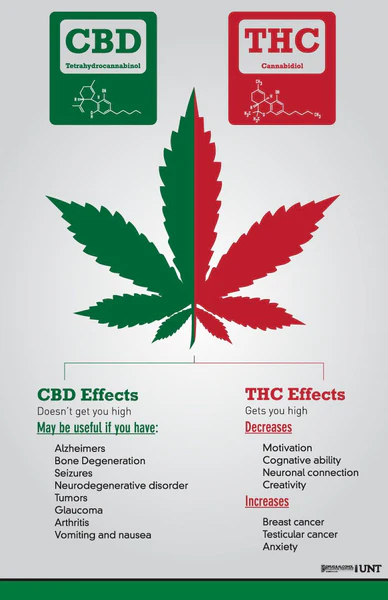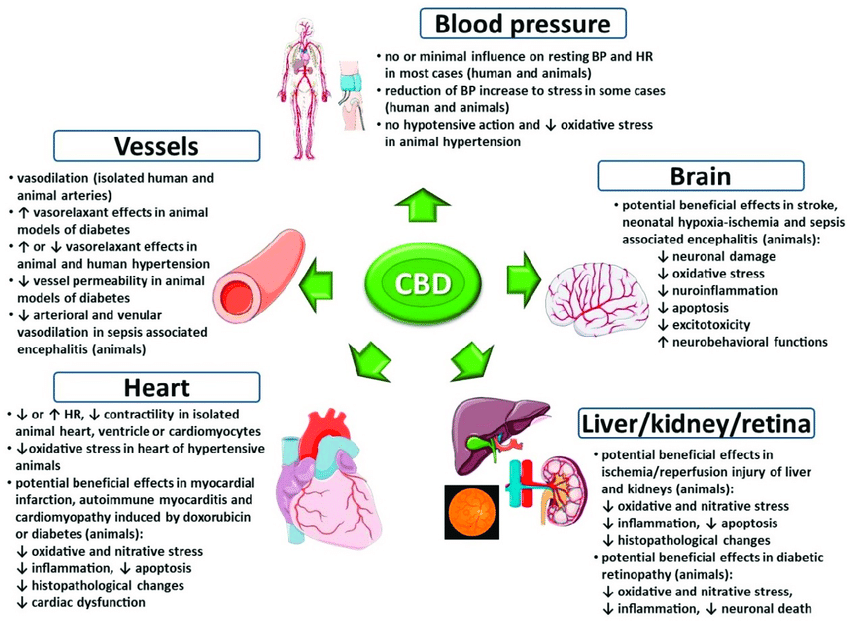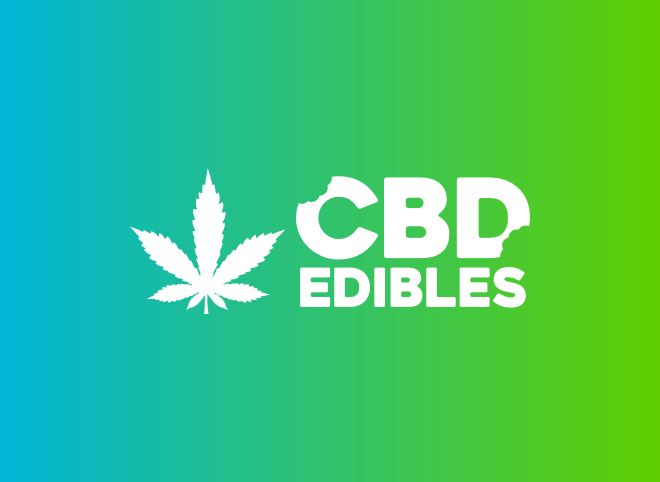
Cardiovascular disease (CVD) is a general term describing a group of conditions negatively affecting the health and function of the heart.1 Such conditions include coronary artery disease, heart defects, arrhythmias, and hypertension.1 Often, individuals are unaware of the presence of CVD until said condition manifests into a more serious complication such as stroke, heart attack, or heart failure.1 Thus, routine analysis of biomarkers, to include resting blood pressure, can help identify early aberrations in cardiac health allowing for preemptive interventions to control the same. One possible solution, as part of a larger protocol, could include the administration of cannabidiol (CBD).

CBD, as covered in this author’s previous posts, is one cannabinoid of more than 80 active different cannabinoids within cannabis and hemp oil, with THC and CBD having been the most widely researched substances within the aforementioned plant.2 CBD has come under increasing interest amongst researchers and clinicians from its potential capacity to induce anti-convulsant, anxiolytic, anti-nausea, anti-psychotic, and anti-inflammatory activity within the body. In the following sections, this author will provide a brief overview of CBD’s influence upon the cardiovascular system, research supporting the same, in addition to an exploration of CBD delivery systems that might be recommended to help individuals control hypertension/cardiovascular health.

Jadoon et al3(2) indicated that CBD has multiple positive effects upon the cardiovascular system; CBD helps manage high glucose-induced inflammatory changes (i.e., from insulin resistance/type 2 diabetes) within endothelial cells of coronary arteries, regulates myocardial dysregulation (in rat models), in addition to inducing vasorelaxation of arteries in humans (helping reduce blood pressure). The researchers also determined that implementing 600 mg of CBD oil among healthy subjects while placing them under stress (to increase blood pressure/sympathetic response) helped reduce blood pressure faster than when compared to the placebo group, indicating CBD’s potential use for individuals experiencing stress. Having considered CBD’s influence upon the cardiovascular system, the following will review formulations, and methods of administration to help achieve the same.

Spindle et al4 indicated that older individuals (who are also more likely to have cardiovascular challenges) have been found to prefer edible versions (aka edibles) more than younger men and women. Such a delivery system has trended among said population as they perceive oral consumption as healthier (avoiding the need to smoke/easier on the lungs).4(99) Another mode of delivery is through inhalation via vaporization of CBD, though not strictly defined as smoking; vaporizing cannabis requires modest temperatures, compared to traditional combustion, thereby lowering toxin exposure (i.e., carbon monoxide).4(99) Said delivery mechanism was found to be preferred among 44% of adolescent users and 33% of the adult population. Similar to edibles, consumers cited greater safety and perceived health benefits when compared to burning/smoking cannabis.4(100)

CBD can be procured as a concentrated extract by using a solvent such as ethanol, hydrocarbon gases such as propane/butane, ice water, and/or pressurized heating processes.4(100) End products, as mentioned in the previous section, can come in the form of edibles, vaporized, and smoking forms. Another mode of delivery, though less studied, would be topical administration; such a means of delivery could take the form of patches, gels, salves, creams, balms, and lotions.4(100) However, due to the recent and precipitous increase in CBD sales in this author’s home country (Canada), researchers have not fully matched said increase with studies comparing pharmacodynamic and pharmacokinetic differences between the modes of delivery.4(100) Such gaps in research has left clinical evaluation/comparison of cannabis products, dosing guidelines, dosing guidelines for modes of delivery, and reasons for use, largely unexplored.4(100)
In conclusion, CVD constitutes a group of conditions negatively affecting the health and function of the heart. Such conditions include coronary artery disease, heart defects, arrhythmias, and hypertension. Left unchecked CVD can manifest into stroke, heart attack, heart failure, and death. However, if individuals remain vigilant and routinely monitor biomarkers, such as blood pressure, preemptive steps can be taken to attenuate such deleterious changes in cardiovascular health. Research has suggested that administration of CBD can help lower blood pressure, though studies are currently limited on product comparisons, quality, and recommended dosing. Thus, caution should be observed if self-administering CBD and this author strongly advises consumers to work closely with their family physician if considering CBD oil as a means of managing CVD.
References
1. Heart Disease: Symptoms and Causes. Mayo Clinic Website. https://www.mayoclinic.org/diseases-conditions/heart-disease/symptoms-causes/syc-20353118. Accessed May 18, 2020.
2. Teitelbaum J. A hemp oil, CBD, and marijuana primer: Powerful pain, insomnia, and anxiety-relieving tools! Altern Ther Health Med. 2019;25(S2):21-23. https://search.proquest.com/docview/2261140637/fulltextPDF/4EA36C8E23BB43C8PQ/1?accountid=12378. Accessed May 19, 2020.
3. Jadoon KA, Tan GD, O’Sulliven SE. A single dose of cannabidiol reduces blood pressure in healthy volunteers in a randomized crossover study. JCI Insight. 2017;2(12):1-11. doi: 10.1172/jci.insight.93760.
4. Spindle TR, Bonn-Miller MO, Vandrey R. Changing landscape of cannabis: Novel products, formulations, and methods of administration. Curr Opin Psychol. 2019;30:98-102. doi: 10.1016/j.copsyc.2019.04.002.
-Michael McIsaac
